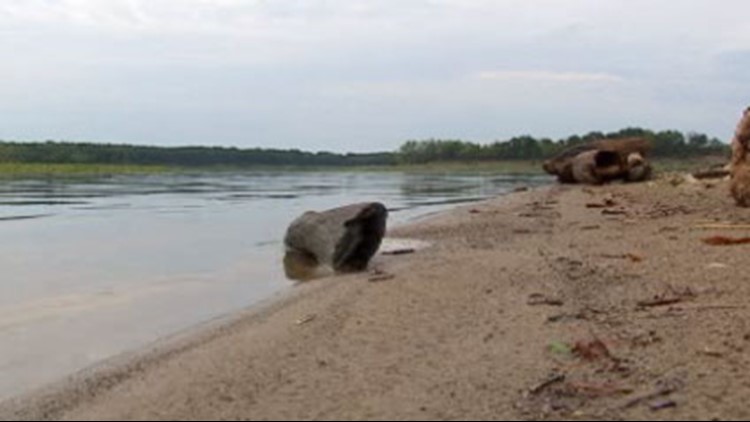The drought is raising health concerns about a toxic bloom in waterways across the state.
While blue-green algae pops in many lakes each summer, it's popping up sooner and in more places. That's because blue-green algae thrives in hot, dry conditions, where a lack of rain leads to stagnant water.
The DNR recently issued a statement advising people to exercise caution when swimming in lakes and reservoirs, saying levels in certain places were up.
Indy Parks closed the beach at Eagle Creek two weeks early, because water monitoring showed high levels of the algae.
"Once it blooms, we need to be cautious and protect our patrons," said senior park manager Rich Irish said.
Irish said exposure "can cause body rashes on those with sensitive skin," while "swallowing water with blue-green algae an cause upset stomachs and diarrhea."
The algae poses a bigger hazard to dogs. Two dogs recently died after being exposed to blue-green algae while swimming in a lake in northern Indiana.
Sara Rudwell, a veterinarian at the Broad Ripple Animal Clinic, said, "Unfortunately the toxins can kill quickly, within hours to a day" of exposure.
"For dogs, the issue is they'll be ingesting the water. When people swim, they're less likely to swallow, but dogs who are enthusiastic about getting in the water are more apt to swallow water and groom themselves after, licking their fur," Rudwell said.
Hannah Todd took her pointer, Tilly, to the Eagle Creek Dog Park Tuesday afternoon to play. Todd, who lives along the White River, says while Tilly loves to swim, she's not taking chances.
"I bought a baby pool, so she's still able to get her water fix and cool off, but I've tried to keep her out of the river or Eagle Creek," she said.
Algae is also a concern at smaller lakes, like Mystic Bay on the north side. The Homeowners Association has the water tested regularly. An unusual algae caught the eye of the service provider. While it wasn't blue-green algae, they decided to have it analyzed just to be safe.
Sandy Beard with the homeowners association said in the meantime, they've urged residents to avoid swimming until the results are back.
"We have grandkids come out, a lot of dogs like to swim in the water. We want to keep everyone safe," she said.
The DNR said boaters, swimmers and dog owners should avoid ingesting lake water, avoid contact with algae blooms (which look like pond scum), shower with soapy water after swimming and bathe your dogs with soapy water as soon as possible after a swim.



